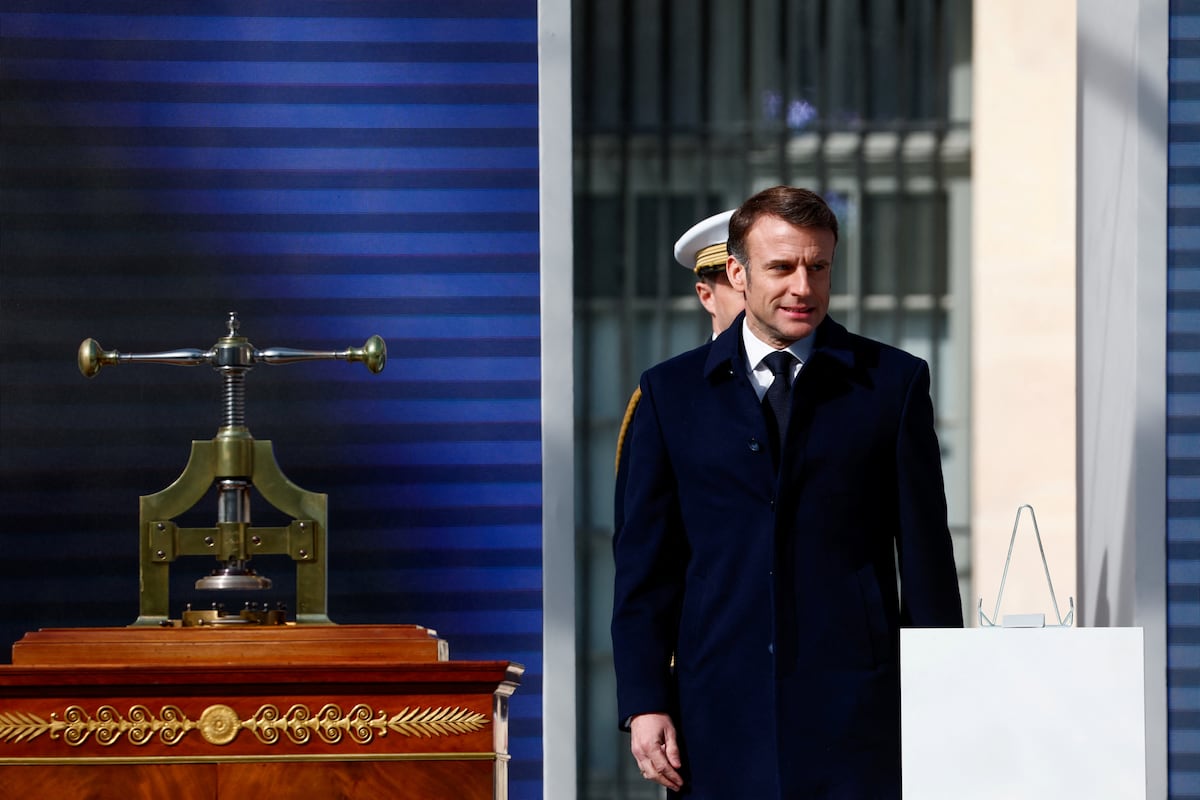France already officially recognizes in its Constitution the freedom of women to have an abortion, after this Friday, in an open-air ceremony in Paris, the text was solemnly sealed with a press from the Napoleonic era.
Emmanuel Macron declared: “France has today become the only country in the world whose Constitution explicitly protects the right to voluntary interruption of pregnancy in all circumstances.”
The next stage, according to the French president, must be the inscription of the right to abortion in the Charter of Fundamental Rights of the European Union: “We will not find rest until this promise is fulfilled throughout the world.
And thus concluded a process of less than two years that led to the massive vote on Monday of senators and deputies, and which allows France to present itself as a pioneer country.
First?
Urška Klakočar Zupančič, president of the National Assembly of Slovenia, disagrees.
“Basically, I don't know what it's like to live in a country that doesn't have [the right to abortion] in its Constitution,” she tells EL PAÍS.
“I'm not even 50 yet, and in Slovenia this has been a constitutional right for 50 years.”
The Slovenian politician, who has been in Paris for a meeting of parliamentary presidents, alludes to the most cited precedent: the Constitution of Yugoslavia of 1974. The text said: "It is a human right to decide freely about the birth of one's children."
When Yugoslavia broke up, Slovenia preserved the right.
Klakočar Zupančič states: “Everyone has the right to have children or not, and in practice this is the right to abortion.”
In
Global gender constitutionalism and women's citizenship
, a reference book on the subject, Professor Ruth Rubio-Marín explains that in socialist countries the debate on abortion “was seen inextricably linked to the question of demographic control and, to a certain extent, to that of women's health."
She and she adds: “The coexistence of abortion with pronatalist policies that glorified motherhood, however, makes this region a dubious example of the early recognition of women's reproductive autonomy.”
The detractors, on the French right, of the left's initiative and the Macronists point to the Yugoslav precedent to indicate that it is typical of socialist and dictatorial countries.
They could have cited another Constitution, that of contemporary Cuba: “The State (...) ensures the exercise of sexual and reproductive rights.”
Or South Africa, which is democratic and whose Charter of Rights reads: “Everyone has the right to bodily and psychological integrity, which includes the right to make decisions regarding reproduction.”
The difference, according to several experts, is that none of these cases specifically refer to the voluntary interruption of pregnancy.
France yes.
“What France does and what is unique is that, although it already has [the right to abortion] at the legislative level, it elevates it to a constitutional rank to make it defining of its political identity,” says Rubio-Marín, professor at the University of Sevilla.
“In that they are pioneers.”
“France is the first country in the world to include an explicit guarantee for the freedom to abort in its Constitution,” confirms Leah Hoctor, European director of the Center for Reproductive Rights.
“Several countries already provide constitutional protection for the right to abortion,” she recalls.
“What is different is that they do not do it through a specific guarantee like France, but (...) implicitly through other constitutional rights such as the protection of sexual and reproductive health or the right to decide on the number of children and the space between one and the other.”
Notes Gila Stopler, law professor at the College of Law and Business in Israel: “Enshrining the right to abortion in the Constitution, especially in countries where changing the constitution requires a majority and a special procedure, such as France, means that it is more protected against the possibility of a conservative majority or a conservative Supreme Court.”
What prompted the French measure was the repeal, by the US Supreme Court, of the
Roe v. Wade
ruling in the summer of 2022.
“All over the world, even in the largest democracies, even in our neighbors, in Europe, we are witnessing a decline in the right to abortion,” Macron denounced this March 8.
“Since the unthinkable returns, it was necessary to record the irreversible.”
Subscribe to continue reading
Read without limits
Keep reading
I am already a subscriber
_

